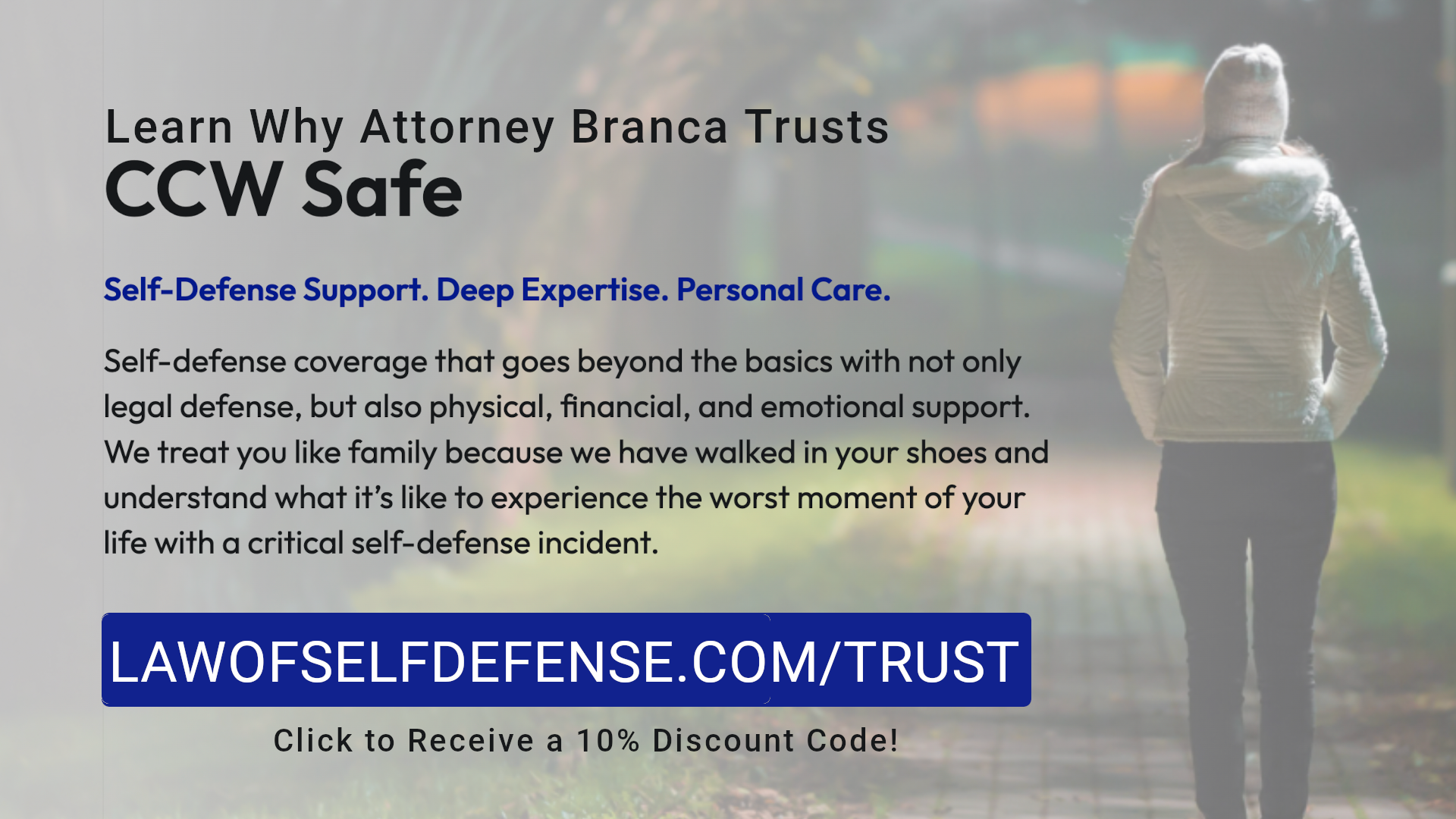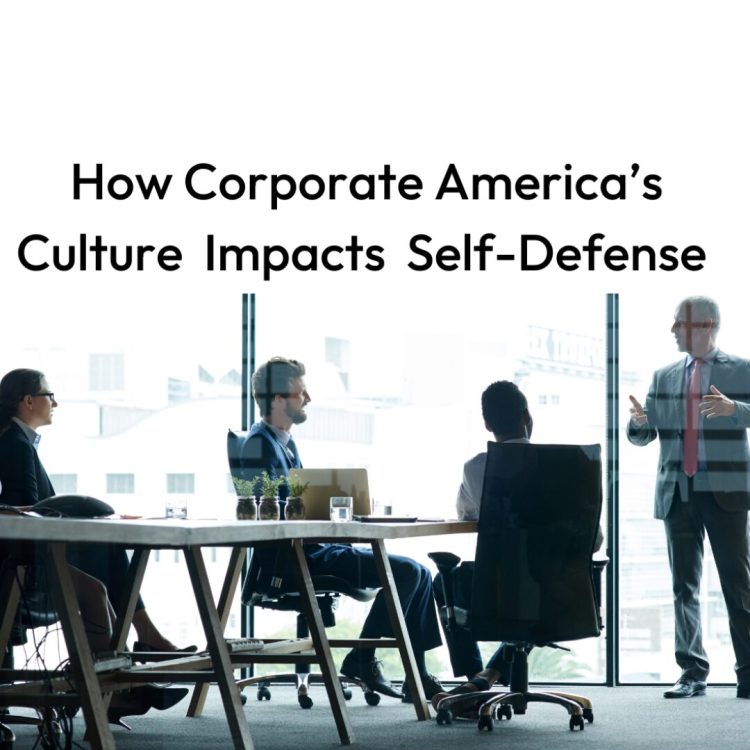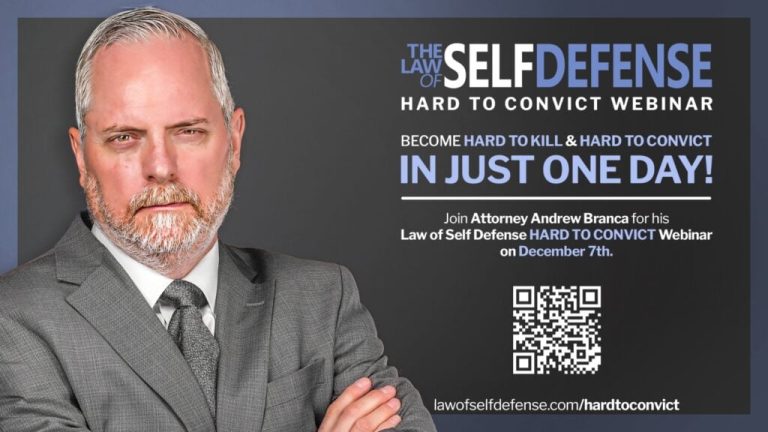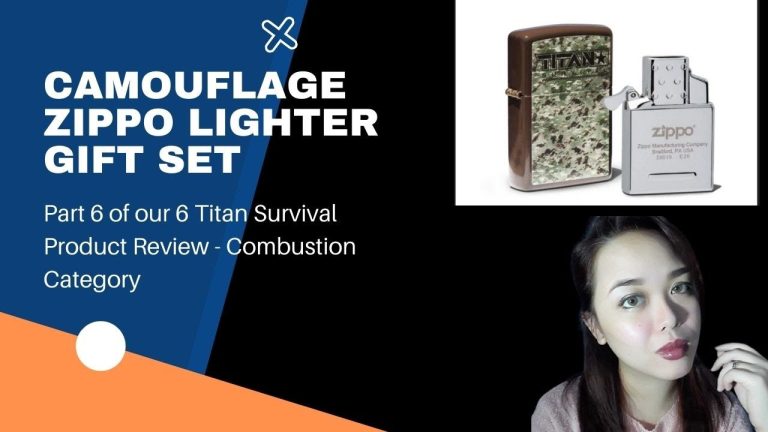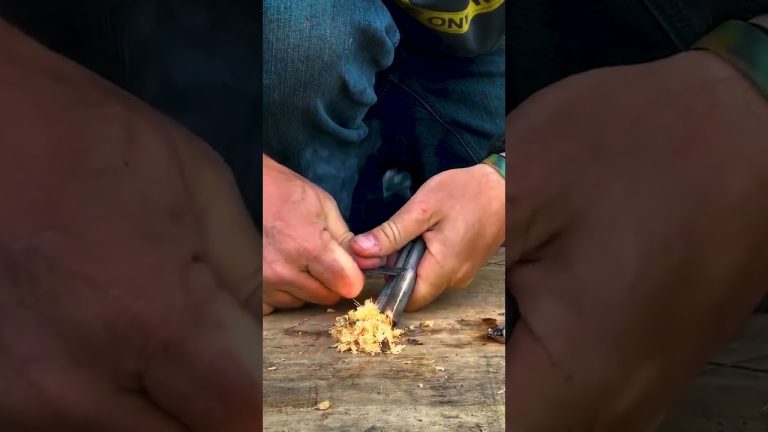Today’s show is a brief follow-up to yesterday’s “If Only USCCA Had Done It Right: Part 1”
Unfortunately, yesterday I had a hard stop at the top of the hour, and wasn’t able to fully complete my thoughts on this topic–so I do that in today’s show.
PLUS I’ll comment on the recently announced new USCCA policies.
Note that my critique of USCCA’s “new” policies begins at about 30:14 into the show.
I also encourage folks to check out the breakdown of these “new” USCCA policies by Attorneys on Retainer here: https://youtu.be/6FjwWOuP7B0?si=oGGHPFuaiNGZWrLL
Disclaimer – Content is for educational & entertainment purposes only, and does not constitute legal advice.
Copyright Disclaimer Under Section 107 of the Copyright Act 1976, allowance is made for “fair use” for purposes such as criticism, comment, news reporting, teaching, scholarship, and research. Fair use is a use permitted by copyright statute that might otherwise be infringing. Non-profit, educational or personal use tips the balance in favor of fair use.
Transcript
(PDF Link)
NOTE: All LOSD video/podcast transcripts are prepared in rough form, provided solely for our members’ convenience & documentation, and are not thoroughly reviewed for accuracy. Refer to the original video/podcast for the authoritative form of this content.
Welcome everybody. Welcome to today’s timely, timely law of self-defense show starting just about on time. I am, of course, Attorney Andrew Branca for the law of self-defense. Thank you. Thank you all for being here today and today is an unplanned continuation. Oh, yesterday’s show, I have to apologize for that.
I thought I could get yesterday’s show done in an hour and I had scheduled something as a hard stop at the top of the hour, but I had a few more comments I wanted to make about US CC A, the troubled US CC A United States concealed carry association, a provider of what many people refer to as self defense insurance. I legal services coverage for use of force events type of program. They say US CC A does that if one of its members is involved in a use of force event, they will pay for that member’s legal expenses in defending against the criminal charge that might result from a use of force events, self defense, defense of others, defense of property. And then there’s various civil coverage options available as well.
Uh I don’t claim to be an expert on the terms and conditions of us CC A, although they just announced some new policies, so we’ll cover those in today’s show briefly as well. The difficulty with us CC A is there have been at least two highly publicized cases in which US CC A didn’t or appears to not have covered paid up members who were facing legal jeopardy with dire consequences for those members. When US CC A did not as its marketing campaigns assure us have their members back. And I’ve talked about these at some length. In fact, I have a whole page of critiques of us CC A over these failures. Those can be found here that banner at the bottom law of self defense.com/us CC A. It’s just an agg aggregation page of my writings about these apparent failures to cover their members.
And uh yesterday show was really supposed to be focused on, could there ever be circumstances in which I attorney Andrew Branca would say it would be appropriate for us CC A not to cover a member. And yesterday we covered a case out of New Mexico in which a defendant had been charged with murder over the killing of another man and had been denied the opportunity to argue to the jury that what he did was self defense. Now that’s awkward because when you claim self defense, it’s inherently a legal defense of confession and avoidance.
In, in other words, you’re not denying it was you who used force against another person. You’re not saying I have an alibi. I was someplace else. Somebody else did this.
You’re saying the opposite of that. You’re saying it was me. I shot that guy.
I killed him but I did it in lawful self defense and therefore it’s not a crime. There ought to be no criminal or civil liability for my taking of that human life. Well, imagine if you raise the legal defense of self defense, which implicitly requires that you, you confess not to a crime but to the underlying physical conduct. I shot that guy, but I did it in lawful self defense.
And then the trial judge says, well, you know what, I’ll, I’ll let the first half of that go in front of the jury that you shot the guy. But I’m not gonna let the jury consider self defense as a legal justification. Uh Well, then all that’s left in front of the jury is a confession to the killing.
So it’s very bad. Uh, when a defendant raises the legal defense of self defense and has it swatted down by the trial judge? Because essentially now they’ve confessed to the jury becomes a very, as you might imagine easy conviction for the prosecution. This defendant from New Mexico was in fact convicted, appealed his conviction up to the New Mexico Supreme Court and they affirmed his convict conviction. They said, yeah, a, a jury instruction on self defense was properly denied by the trial court in this case, now I’m not gonna go into all the details of that case.
You can, I will link to part one of this pair of shows in the description. I think I already did that. Uh So you can dive into the details there. The reason I wanted to bring that case up in the context of US CC A, not that US CC A had anything to do with that case.
But if A US CC A member had found himself or herself in that situation where their use of force was so obviously not self defense strictly as a matter of law, the facts viewed in the light most favorable to the defendant would result in the conclusion that this could not legally have been self defense. How do you get to that conclusion? Well, any claim of self defense has up to five legal elements that can be required. Those are innocence, imminence, proportionality, avoidance and reasonableness. By the way, we, we make this cheat sheet available for free. I should have a URL for that too. Here it is the five elements of self defense, cheat, cheat law, self defense.com/elements. We don’t charge a penny for this.
It’s just a PDF download it lists those five elements and has a brief description of each. If you don’t understand those five elements of self defense, you cannot possibly understand defense of persons, law, self defense or defense of others. So those five elements up to five elements are the required minimum elements of self defense, unless one of them is legally waived for, for some reason, then there might be only four elements required or three elements. The good news is there’s never 500 elements of self defense or 50 elements of self defense. The most that are required are those five innocence, imminence, proportionality, avoidance and reasonableness, but whichever of those five are required. Well, obviously they’re required. If any of them are missing, you cannot have a legal defense of self defense because you’re missing a required element of self defense.
So each of those elements becomes a target of attack for the prosecution. He needs only disprove one of them. He doesn’t have to disprove your claim of self defense in its entirety. He has to disprove beyond any reasonable doubt to the satisfaction of the jury.
Any 11 of those five up to five required elements. If he does that your claim of self defense simply vaporizes or the judge can find that there’s literally zero evidence to support one of those five elements. Remember, we have this expression, right? Better to be tried by 12 than carried by six, a silly expression of my mind because it’s not as if it’s a binary solution set.
Those are not your only two options but the people who are so confident that the tried by 12 will result in a favorable outcome for them. Uh That’s only true if there’s evidence for them to consider on each of the required elements of self defense. If there’s literally zero evidence on any of these elements, the judge is proper to deny a self defense jury instruction because the only rule of the jury is to act as the finders of fact to evaluate evidence. If there’s zero evidence on a legal question, there’s nothing for the jury to do. So, you wouldn’t give them a jury instruction on that issue. So let’s focus here on the Kayla Giles case.
Initially, Kayla Giles had shot and killed her, either estranged husband or divorced husband. I forget the details now, but they were doing a custody swap with their Children in the parking lot of a Walmart. And um Kayla Giles says I shot my husband when he attempted to force entry into my vehicle after the Children had been exchanged and there’s a little bit of video of this and the video is ambiguous. Um But here’s a critical point. Ka guy’s lawyer believed she had a viable claim of self defense.
And more importantly, the trial judge was allowing the legal defense of self defense to be argued to the jury. So not the New Mexico case. I just talked about where the judge said I’m not going to allow the jury to consider self defense in the Kayla Giles case.
The judge said there’s enough evidence here on these five elements to properly allow a jury to consider the possibility of self defense and on those facts and law US CC A refused to meet their obligation to cover Kan’s legal expenses. They paid the 1st 50 grand, I believe she was entitled to 100 and $50,000 in legal expense coverage. Uh, at the time they paid the 1st 50 grand. And then when her criminal defense lawyer sought additional monies, uh, they said no, we’re not paying anymore and they were sued by Kayla Giles. Us CC A was in federal court and their response because I’ve read the filings in federal court, the response was essentially we, we just don’t think we have any obligation to pay. So they didn’t pay. So Kayla Giles didn’t have that $150,000 worth of legal resources she would have had if US CC A had met their obligation, she went to criminal trial and she was convicted of criminal trial, found guilty of murder.
Now, we’d like to think that how much money we have to bring to a legal fight doesn’t influence the justice we get. But I assure you it does a legal fight is like any other battle. If you’re going to battle, you want as many resources as possible because it can be determinative of the outcome.
Would Kayla Giles have been convicted? If she’d had the financial backing that US CC A had promised her, we’ll never know because they didn’t provide it and they never provided a very good explanation for why, except much later they would say. Well, obviously, obviously this was clearly to us, to us c CAA case of murder. Well, that’s not what her lawyer thought. Perhaps he’s biased, but that’s not what the judge thought it wasn’t. So obviously murder that he denied self defense is a legal defense to Ka Giles.
I’ve looked at the facts of that case. I see a viable self defense argument and I know something about self defense law, as you might imagine, there are other, many other attorneys I respect who’ve looked at the case and they similarly believe there’s a, a viable, maybe a robust self defense argument here, especially when we consider that the burden of proof on self defense is not on the defense to prove self defense. Kayla Giles didn’t have to prove self defense at trial. The state had to disprove self defense beyond any reasonable doubt, a very high threshold for the state to achieve would an additional $100,000 in legal defense resources have enabled Ka Giles to prevent the state from achieving that very high threshold? Perhaps, maybe we’ll never know because it didn’t happen and now now because it didn’t happen. And by the way, Klas appealed to her conviction to the mid-level appellate courts in Louisiana and they affirmed her conviction, which just means they didn’t find a reversible technical legal error in the decision making at trial.
It doesn’t mean that they think she might not have been acquitted. Had she had an additional $100,000 in resources. That’s not the question before the appellate courts.
So they affirmed her conviction, by the way, US CC A obviously did not provide legal resources for her appeal either. And the same dynamics apply the resources you can bring to an appeal affect your probability of winning on that appeal. Getting meaningful relief. Like a, like a new trial, for example. And her conviction was uh was affirmed on appeal. She’s serving life plus 30 years now.
We don’t know whether or not her killing of her husband was murder or lawful self defense. None of us were there. The prosecutor doesn’t know he wasn’t there. The judge wasn’t there.
The jury wasn’t there. The appellate court wasn’t there US CC A was not there. All we can look at do is look at the evidence here, the legal arguments and try to come to a reasoned decision on whether or not the state has proven guilt beyond a reasonable doubt, disproven self defense, beyond a reasonable doubt. But that’s not cast in concrete, that’s partly a function of how many resources Kayla Giles had to bring to that argument and US CC A kneecapped her resources for no reason that I’ve heard that’s very good because they decided it was clearly murder. And that’s really the key question to my mind for any of these programs who decides who decides whether or not the self defense insurance, the legal service provider, whether it’s US CC A, whether it’s CCW safe, whether it’s, uh, attorneys on retainer, whether it’s the armed citizen legal defense network, whether it’s legal shield, whether it’s any of these, who decides whether they ought to be obliged to step up and meet their responsibilities to their member or client, or whether it would be appropriate for them to step back and say no, this, this is not a case in which we’re obligated to me. What would otherwise be our commitment to this member? US CC A decided it was up to them at their whim with no explanation required on their part. Thats what I find objectionable and they didn’t just do it in the Kayla Giles case.
It’s less clear what happened in the case of uh Alan Coley, the, the food delivery guy who found himself confronted by a very large and aggressive, um turned out to be social media prankster in a food court in the shopping mall. Uh Alan Coley would pull his concealed carry pistol and shoot that aggressive later discovered to be prankster, but a threatening in conduct person in the mall and he would be criminally charged with a number of criminal offenses. The first thing he did after he fired that shot was call US CC A. He was a member.
He notified them, he’d just been involved in a shooting. Police showed up. Alan Coley didn’t have a lot of resources he qualified for a public defender. He was brought to trial. He was acquitted on the most serious charges but convicted of a gun charge, an unlawful discharge of a gun in a building and received the criminal sentence for that. The sentence was time served because Alan Coley had spent eight months, eight months sitting in a jail cell awaiting his trial, represented by a public defender.
And as a paid up US CC A member, what contribution did us CC A make to his legal defense? Nothing. Nothing, nothing might. Alan Coley not have been convicted. Even of the gun charge been completely acquitted on all charges if he’d had more legal resources. Does anybody think a public defender who are often great lawyers but are invariably overworked and under-resourced? Does anybody believe a public defender would have turned away free resources from US CC A? Now months after this became public knowledge, US CC A would uh release a purported email from Alan Coley, uh in which Alan Coley says, no, I was fine with my lawyer. I didn’t need any help from us.
CCA I didn’t want any of their resources. I’m paraphrasing. Of course, that was an email Alan Coley supposedly sent to US CC A released by Tim Schmidt, the, the president or CEO of US CC A. Anybody believe that, I mean, you’re free to, it doesn’t seem very credible to me. It feels to me like reputation, uh management.
I’m a part of US CC A because they could have made that statement the first day, the Alan Cole News emerged, they could have said no, no day one, day one. Yeah, I, I know you’re all talking about the fact that we didn’t provide any resources to our US CC A member. Alan Coley. It’s because he told us he didn’t want them.
They, they could have said that day one or day two or week one or week two or month, one or month two. You think Alan Coley voluntarily sat in a jail cell for eight months awaiting trial? Because he, he just didn’t want to bother us ec A with, with asking for any resources from them. Hey, can, can we get some more another lawyer on this team? Can we, can we try for bail again? Can we make a fresh argument for pretrial release? But we’re supposed to believe that Alan Coley just said, never mind US CC A. I’ve been paying you what typical US CC A plan 30 bucks a month. I’ve been paying you 30 bucks a month for God knows how long. And then when I’m actually horrifically compelled to use deadly force to defend myself and facing felony charges go to trial, although I’ve been paying for my US CC A membership. I, I actually, I don’t want any of that.
That’s possible. I haven’t spoken to Alan Coley. It does not strike me as particularly credible. So under what circumstances would it have been appropriate for us CC A appropriate for them to not support Kayla Giles or Alan Coley. That’s what we’ll talk about today and some of the, uh some of the new policies they just announced.
So with that, let me go ahead and start the former launch of today’s show. And today’s sponsor is none other than CCW safe in full transparency. A competitor to us CC AC CW Safe provides legal service memberships in effect, they promise to pay their members legal expenses of the members involved to use force in defense of themselves, their family, their property or others. I just talked with uh Ken Smith of uh US C CAA. Couple of days ago, we were chatting about some stuff and um and he was describing to me, they, they have a defense of others case.
They’re working right now with their National Trial Council attorney, Don West. So they, they definitely cover defense of others as well as the defense of yourself. There are, of course, I’ve mentioned a number of other companies offering purportedly similar services out there in the marketplace. Uh Some of them are worth considering some of them I simply cannot recommend under any conditions in good faith.
Like I cannot recommend us CC A for all the reasons we’re talking about here today. So I would encourage you to look at all the good offerings out there in the marketplace and, and decide which one is the best fit for you if you decide you’d like this kind of coverage. And by the way, I mentioned, Kayla Giles us CC A paid 50 grand and then decided not to pay the rest of the 100 grand, um, 100 and 50 grand in a killing trial is very common legal expense.
In fact, it’s very common to spend that kind of money before you get to trial. Just pretrial expense. So these cases get very expensive very quickly. So if you don’t have that kind of money in a mattress, just waiting in case you need it because you were compelled to defend yourself. Uh, it could be helpful to have this kind of coverage. I’ve looked at all the offerings out there and the one I found that’s the best fit for me is CCW Safe.
I’m personally a member of CCW Safe. My wife Emily is personally a member. They’re the best fit for me and I trust them and trust is very important here, as we can see from the US CC A experience because if you can’t trust this partner who’s supposed to have your back, what’s the point if you’re actually compelled to fall back on the contractual conditions of service, if you have to sue them, what are you really getting out of that relationship? Because the cost and time of the suit burns up much of the benefit you would have gotten and you may not really for practical purpose. Be able to sue the Kayla Giles case is interesting here on this point for K, as I mentioned, Kayla Giles when she was denied her benefits from US CC A, her lawyer sued US CC A in federal court. But if there’s a civil suit and there’s a criminal case about related matters, the civil suit is always put on hold until the criminal case is done. What did that mean for Kayla Giles? It means she had no path, no legal path to compel us CC A to provide her with the promised resources before her criminal trial was over. So she was compelled to fight that criminal trial battle without those resources.
And this, this is great for us CC A because effectively it becomes a win win because if Kayla Giles goes through the criminal trial process and she’s acquitted, found not guilty. Well, she suffered no harm from their denial of what they promised her. And if she’s convicted, they get to see, say, see, we told you the whole time she was guilty and they have no liability to pay what they promised her. Is that the kind of partner you wanna have? So trust is extremely important. I trust CCW safe if you’d like to learn exactly why I trust them. You can go to that URL up on the screen.
Law of self defense.com/trust little video there in which I explained that. And at that same URL, you can get a 10% discount code for your own membership at CCW Safe Law of Self defense.com/trust. So are there circumstances in which us CC A in my opinion would have had a defensible argument for not covering Kayla Giles or Alan Coley? And there’s really two that come to mind.
One is the New Mexico case. We just talked about where the trial judge decided there is zero evidence to support one or more of the required elements of self defense as a strictly technical legal matter, this cannot have been a lawful use of force in self defense. So I’m denying you self defense is a legal defense in this trial. If a judge says that and this of course, is in the context of an adversarial trial, right? The defense lawyer is arguing for self defense, the prosecution may be arguing against the judge does a technical legal analysis, makes his determination.
And by the way, it’s really a more than zero evidence standard. So you don’t need a lot of evidence on any of these elements, you basically need more than zero. If there’s a scintilla, 1% evidence on any of those elements on each of the required elements. Well, then there’s something for the jury to consider and the jury decides how much weight to give that evidence. It may look like 1% to us, but it could look like 99% to a jury, but there has to be more than 0%. That’s not hard to do for most good guy cases of self defense.
It’s not hard to do for most bad guy cases of self defense have more than zero evidence to support self defense. So the jury gets that self defense instruction. A case has to be truly egregiously, obviously not self defense for a trial judge to conclude zero evidence. Nothing there, nothing for a jury to consider.
So it’s so rare and it’s such a high threshold that has to be met for that to happen, that if that were to occur, if US CC A had a member, that member is put in front of a judge and that judge says this cannot have been self defense no matter, no reasonable jury could conclude self defense here as a strictly technical matter. I I’d understand if US CC A stepped back and said, listen, we, we cover self defense cases and the judge is telling us as a legal matter, he’s the legal expert as a legal matter. This is not self defense. Now, I wouldn’t mind if US CC A covered them anyway.
I don’t see why they wouldn’t do that. I mean, in the context, US CC A makes something between 20 $30 million a month on its member policies. It’s a lot of money. Legal defenses are expensive as I just said, 100 200 grand pretrial expense.
But you know, that’s orders of magnitude, many orders of magnitude less than what US CC A makes every month. So certainly they can afford to cover even ambiguous cases. But if they had said, listen, we’re not covering, we’re not covering Kayla Giles, we’re not covering Alan Coley because the judge has decided this can’t be self defense as a matter of law, I would have understood.
I would have understand. But of course, that’s not what happened in either of those cases. Kayla Giles was allowed to argue self defense. Alan Coley was allowed to argue self defense. The other scenario in which I would have understood if US CC A had not covered Kayla Giles and Alan Coley would have been if either of them had violated a contractual condition of their member benefits, all these various programs, whether it’s US CC AC CW safe attorneys on retainer um armed citizen legal defense network law shield, right to bear um, any of them, they all have terms and conditions that have to be met.
For example, very simply if it’s a, if it’s a membership you pay for, you have to have paid for it, right? You have to be a paid up member. I if you, if you paid for the first couple of months and then you stopped paying well after you stopped paying, I would understand if the company said, listen, they, they, they weren’t paying for membership anymore. So we’re not gonna cover that. I get it.
Sometimes various offerings may have conditions like, well, we only cover, um, you know, use of a firearm in self defense. So if you defend yourself with a knife, we’re not gonna cover that. Well, as long as you know that at the time you become a member, uh as long as that’s made transparent, well, that’s a condition you’re accepting. And if you violate that condition, that company ought to be privileged not to cover you for something they told you they would not cover.
It. Could be true. Also, if you were, if the company has a condition against, uh, they don’t want to cover intoxicated self defense. Um, that’s not what I would argue.
I would argue. I don’t care, I mean, my own platinum members, I don’t care if you were intoxicated or not or what kind of weapon you used or anything like that. Uh If you’re a platinum member, you get my legal consult for free regardless of any of that.
But if a company said, listen, if you’re drunk, uh, we’re not gonna cover you. All right. Well, you know that as long as that’s transparent and you’re aware of that condition when you become a member, I get it if they would decide not to cover you.
But US CC A never ever claimed that either Kayla Giles or Alan Coley was anything other than a fully paid up member in good standing. They never claimed the violation of a term and condition. None of that in the case of Kayla Giles, they just decided they say looks like murdered us. So we don’t want to cover it.
Was that a condition of membership when Kayla Giles was paying her dues to us CC A? No? Nowhere in that agreement that has said, well, you know, we don’t have to pay if we don’t feel like it. What kind of coverage is that, by the way, what kind of coverage is that we’ll pay if we feel like it? Is that having someone’s back? I mean, is it in, isn’t it in US CC A’s interest to just say we’ll keep the money, we’d rather keep that 150 grand than give it to you. Kayla Giles sue us in ineffectually if you care. It’s terrible.
So, so there are circumstances under which I would, I would acknowledge that any of these companies making these kinds of offerings, this kind of quote unquote self defense insurance stuff, um would have a reasonable basis to deny benefits to a member or a claimed member, but that’s not what happened with either Kayla Giles or Alan Coley in the context of us CC A now US CC A has taken a lot of heat over this. I’m not the only person covering this stuff and uh just this, let me see. When did I get this email? June 8th. So that would have been what last Saturday? Is that right? Whoops. I’m not even in the right year.
Yeah, last Saturday. I and I’m sure thousands of other people have received an email blast from Tim Schmidt. Who is, let me see if I can get his title, right? CEO of uh Delta Defense. Delta Defense is like a, a sister organization of US CC A.
They work cooperatively in this, uh, self defense, quote unquote insurance thing. Uh Tim Schmidt’s been taking a lot of heat about this and US CC A has been taking a lot of heat. God knows how many millions of dollars in memberships they’ve lost. It has to be in the millions a all to avoid what, maybe, maybe half a million dollars worth of legal expenses. I mean, the Alan Coley case wouldn’t have been that expensive because he didn’t kill anybody.
Kayla Giles might have been expensive but they were only exposed up to 150 for Kayla Giles if it had been the same amount for Alan Coley and it, it wouldn’t have been, but let’s pretend it would have been a total of $300,000 that US CC A saved by not covering these two members for no, apparently very good reason. And what’s that decision cost them millions and millions of dollars? I speculate, but it has to be, I don’t see how it could be otherwise, I wonder who at US CC A made those decisions. I wonder if the US CC board has held anybody accountable, but in any case, I guess the heat got hot enough that last Saturday, I and many others, I presume receive this email.
Many of you probably got this email too. US CC A. You know, in many respects, I’ve always felt that US CC A is properly thought of as really being a very, very good internet marketing company. Um, and the product that they market on the internet just happens to be quote unquote self defense insurance and the other stuff. They do the training, the magazine, that kind of stuff. Uh They’re, they’re an excellent internet marketing company. This just happens to be what they’re, what they’re marketing.
So they have a massive massive email list. And uh so I’m sure many of you got this email as well and of course, it’s, it’s, it’s signed by Tim Schmidt. I, I assume he at least approved it, but I expect it was his marketing team or, or somebody who actually wrote this thing.
But here’s the gist of it. Did you hear about the major update to the self-defense liability insurance included with US CC A membership? The US CC A is the definitive best choice for gun owners. First of all, I don’t know how anybody could say that. I mean, I, I partner with CCW Safe. I think the world of those guys to sponsor of this show.
Uh But even I don’t say CCW Safe is the best fit for everybody. We all have different needs and circumstances and financial ability. I do think CCW safe is the best fit for me. I would encourage you to take a look at them to see if they’re the best fit for you. The URL is right there under my name, Law of Self defense.com/trust. But first you have to ask, well, do you even need this kind of coverage, do you think you need it? And second, which of the various options in the marketplace is the best fit for you And it may not be, I would suggest I would suggest it’s not US CC A by any means, it might be CCW safe, but it might be attorneys on retainer.
It might be armed citizen legal defense network. II, I think those are all great options for people to consider, they have different strengths and weaknesses. So I don’t know how anybody can honestly say US CC A is the definitive best choice for gun owners, especially when US CC A doesn’t cover its members if it doesn’t feel like it, as we know from Kayla Giles and Alan Coley.
So they sent out this email. What do they have new red flag law coverage? Red flag laws are, of course, if somebody complains about you to the authorities, the authorities can come and seize your guns. I think those uh those laws are facially unconstitutional and pointless. I think if someone is sufficiently dangerous that they can’t be allowed to possess guns, uh they ought to be locked up. They’re a dangerous person. Taking their guns away, doesn’t keep them from, you know, driving a car through a parade. Right.
If they’re a lethal threat to the public, they need to be secured until they’re not a lethal threat to the public anymore. Simply taking their guns is just an excuse to take people’s guns, obviously. But they say US CC A says they’ll, they’ll provide coverage for fighting a red flag seizure of your guns expunging ceiling records coverage up to $5000 to get your record expunged because you can be uh you know, arrested and you’re booked and there’s a mug shot. All that’s public record, you go to trial all that’s public record. Um So they say they want to uh provide some money, $5000 isn’t that much in lawyer time but whatever, $5000 to try to get your, your record clear.
I I I’d say that’s, that’s a nice thing for US CC A to do except, I mean, let’s, let’s put this in context. Uh They didn’t want to cover Kayla guy’s legal expenses and now legal now Kayla Giles is doing life plus 30 years. What’s her record look like? But now they’re concerned about someone’s record, their members record. Ok.
Loss of earnings coverage. Uh plea deal coverage. This is a funny one. So uh a major problem um with um US CC A in particular but some of these other programs as well is um strictly speaking there.
Uh no insurance company is allowed to pay for criminal conduct. That’s just against public policy. I mean, it should be obvious. Right? So you can’t literally buy murder insurance. I’m going to murder someone incontestably murder no claim of self defense.
I just, I don’t like this guy. I’m gonna walk up and shoot him in the back of the head and then I want insurance that’ll pay my legal expenses to defend against the murder charge. No insurance company, nobody can offer that. That that’s just against the law. So a consequence of that is uh of course up to a verdict being rendered, nobody knows if you’re guilty or not. You haven’t been found guilty yet. So up to a verdict being rendered, you’re presumed innocent under the American system of law.
And so the insurance companies, insurance, every time I say insurance companies just put that in scare quotes, folks, it’s just easier to say than legal services coverage companies. So uh up up through that process until there’s been a verdict of guilty rendered. If there ever would be, you’re presumed innocent, they can pay your legal expenses once you’re found guilty.
Now, you’re, you’ve been determined to be a criminal. They certainly they cannot pay any more after that. They might argue, I would argue that’s not really true because just because you found you’re found guilty by a trial jury, uh doesn’t mean that’s a final adjudication.
You can still appeal your conviction. That’s why we have appellate courts. In fact, CCW Safe provides you with legal cost coverage, not just for your trial but also for your appeal. So if you’re found guilty at trial and you’re appealing, CCW Safe covers the cost of your appeal as well.
If you get a new trial, your conviction gets reversed on appeal, you get a second trial. CCW Safe covers you for that second trial as well. Lot lots of great features to CCW safe. Check them out at law of self defense.com/trust where I explain why I trust CCW Safe.
Now, one complication of this is that, um, being found guilty by a jury trial is one way to get an adjudication of criminal conduct. But another way is if you take a plea deal, now plea deal happens pretrial. But if you take a plea, you’re pleaing to a crime, you’re agreeing to plead guilty to some lesser criminal offense to avoid the risk of trial and a much more serious criminal offense.
So you may be charged with murder, which has the risk of life in prison without possibility of early release if you’re convicted at trial and there’s never a 0% risk of getting convicted at trial. No matter how innocent you are. Folks, the risk of conviction is always greater than zero. So maybe the prosecution comes to you and says, listen, take a plea to misdemeanor battery time served its not a felony and, uh, and we’ll cut you loose. You don’t have to take the risk of a life sentence at trial. That’s a pretty good deal.
I would be urging my client to take that deal. The trouble is if you take that deal, you’re still pleading guilty to a crime. Now, the crime you’re pleading guilty to is always going to have some relation to the crime with which you’re charged. Right? So, if you’re charged with murder, they’re not going to offer you a plea deal of jaywalking, even if it was the same level misdemeanor as simple battery or excessive speeding, right? Uh, if you’re, if you’re charged with murder, they’re going to offer you a plea to some lesser use of force crime.
Here us CC A is saying, oh, plea deal coverage. If you take a plea deal, we’ll still cover your legal defense. But here’s the trick. They’re only willing to do that if it’s a plea deal not to a crime of violence.
Well, this just doesn’t make any sense if you’re charged with the use of force crime, which is the only way you would have access to us CC A benefits anyway, right? In, in a self defense type of scenario, if you take a plea, it will be a plea to a crime of violence because that’s all you’re going to be offered. The best case in the world, you’ll be offered a simple assault or a simple battery plea. Those are crimes of violence. So US CC A is purporting to say, hey, you can even take a plea and we’ll still cover you. Except the reality.
Is that any plea you would be offered that you would have the option to take is a plea that will lose you your coverage. Do they not understand this reality or are they just trying to trick you? I mean, that’s, those aren’t good choices. Are they too stupid to know that what they’re offering here is worthless or are they hoping you’re too stupid to know? I don’t know the answer to that. All right.
Next removal of previous coverage exclusions. Uh, so, uh, coverage is no longer effective if your self defense incident occurs within a post office or a federal building. Also, the great firefighters and paramedics who serve the public are no longer excluded from coverage while on duty. I, I don’t really know what this is supposed to do. So, uh, so for example, it’s against federal law to carry a firearm into a post office. I think most of us know that I don’t claim to be an expert on gun law, but I think most of us know this.
But what if you do it anyway? Well, now you violated that federal gun law. What if you do that carry a gun into a post office and, um, a gun fight ensues and you lawfully defend yourself. Well, you kill a bad guy in lawful self defense. Well, you could be acquitted on the killing and still be guilty of the underlying gun law charge.
They’re, they’re completely separate in my mind. So, certainly if you’re a law of self defense platinum member, and by the way, if you’d like to learn more about that, that’s platinum membership is the only way to have the benefit of my personal legal consult on your self defense claim. Uh, let’s see.
I’m sure I must have a banner here someplace. Hm hm hm hm. Here it is Law of self defense.com/platinum. Uh, but certainly if you’re one of our platinum members, um, and you’ve been charged with the use of force crime and you’re asking for the benefit of our legal consult, which you get for free from us. Um, yeah, I would urge you to, uh, I don’t care where you were. In fact, I have a better banner.
We have a big discount on platinum membership. Law of self defense.com/eighty two cents. You can be a platinum member.
The only way to get my legal consult on your use of force case. Have me be part of your legal team for only 82 cents a day, 82 cents a day. Folks, you have that much change rolling around under the floor mats of your car. I know you do check it out at law self defense.com/eighty two cents. But if you’re one of our platinum members and you say, yeah, I had to shoot someone in self defense in the post office.
All right. Well, the gun law, the gun violation is gonna be tough to fight, but you absolutely still get my consult. I would, I would never dream of not providing the consult because you were, you were carrying a gun where you weren’t supposed to. I, I don’t care. That’s got nothing to do with the self defense claim.
I guess US CC A did used to exclude coverage, uh, in post offices or federal buildings. I, I don’t know why they would do that. The unlawful carry into those facilities doesn’t undermine any claim of self defense. But what I find interesting here is they don’t say simply say, like I say, oh, we don’t, I don’t care where you were carrying, I don’t care. I don’t care if you were carrying on an airplane which obviously is unlawful.
I mean, you’re gonna have big gun possession charges there but you still get my self defense consultation. Why doesn’t the US CC A just say, you know, where, where the, where the self defense occurred is irrelevant to us. We will cover you for your self defense legal defense no matter where you were, no matter where you were and no matter what other offense you may have been committing because that’s my policy. So they, they, they do this kind of stuff where they seem to be trimming around the edges.
Why just firefighters and paramedics, by the way, while coverage on duty what about military personnel, most of whom are not supposed to be, for example, be carrying on a base? Right? I mean, I’ve never served, but that’s my understanding. What about any of us? What about lawyers and accountants and, and you know, nurses, why don’t they get this benefit? Why doesn’t everybody get this benefit? Why, why are you differentiating in this way? Coverage? Determination? Another update it says the insurance company is contractually required to provide coverage so long as you can in good faith, assert self defense as a justification under the law. Now, I don’t know what good faith means here. Who decides good faith? See again, they don’t say who’s making the decision.
Who says it was good faith? Self defense does us CC A say that’s what, that’s what happened in the Kayla Giles case us CC A said, doesn’t look like self defense to us. We’re not gonna cover it. What it should say is if the judicial system uh permits a legal defense of self defense, they ought to cover. I don’t know what good faith means and, and here it’s interesting um because neither us CC A nor mhm nor Delta defense is the insurance coverage. So they say the insurance company is contractually required.
So they’re committing, Tim Schmidt is committing the insurance company, who’s the insurance company? It’s these guys, it’s universal fire and casualty insurance company. That’s the insurance company. Let me move this over. So Tim Schmidt is telling everyone the world, everyone who received this email that, hey, this company that I don’t control, I don’t own. It’s, it’s an arm’s length partner of us CC A and Delta defense.
They’re contractually required to cover you. You mean like US CC A was contractually required to cover Kayla Giles and just decided not to. What if this universal fire and casualty? What if, what if you’re involved in a politically energized self defense case like Kyle Rittenhouse or George Zimmerman where there’s a lot of political heat.
You think this insurance company might just say no, no, we, we don’t feel like it. You think this insurance company might not do exactly what US CC A did with Kayla Giles just say no, looks like murder to us and we, we can’t cover criminal acts. So we’re, we’re just not going to cover this. And what control does Tim Schmidt have over this insurance company? None.
So if this insurance company decides to do exactly what US CC A did with KG, just wash their hands of you. What’s Tim Schmidt gonna do about it? Does he say here that if the insurance company does not meet that contractual obligation? Because remember if they violate their contract, first of all their contracts, not with you. It’s with you as CC A. But if they violate the contract, what are you gonna do? Sue him in civil court and have your lawsuit suspended until your trial is over and you’re fighting your trial without any of the resources you were promised like Kayla Giles had to do is Tim Schmidt saying, and if the insurance company does not provide the promised coverage, we Delta Defense US CC A will make that up, we’ll indemnify you.
We make sure you have that money. Tim Schmidt’s a pretty wealthy guy from owning us CC A and Delta Defense. Tim Schmidt could say I’ll personally write a check.
You will have those resources, but they don’t say that. Do they? They say this insurance company, we don’t, we don’t control, promised us that they’ll provide the money. But if they don’t, it’s no sweat off the back of us CC A and Delta Defense updates. So they’ve increased from 100 grand to 250 grand available for bail bond expenses. Um, whatever I’m, I’m, it should be more, in my opinion, I’m not sure there should be a limit in my opinion. Uh No elective recovery or recoupment of expenses.
So in the past US CC A has said, hey, if uh if we pay a couple 100 grand for your legal defense and then you’re convicted or you take a plea and that could be a last minute plea the day before trial could be during the trial. If you’re convicted or you take a plea, we reserve the right to take all that money back from you all the money, the couple 100 grand we provided we’re taking it back. Think about the condition that puts you in the circumstance that puts you in. Imagine you’re charged with first degree murder, life in prison without possibility of early release. And it’s an 18 month process up to the trial.
And your lawyer spends a quarter of a million dollars pretrial on your legal defense lining up experts, your own investigators, having your own laboratory testing, done all this stuff, video analysis and breakdown these things get expensive fast. So leading up to trial, your defense attorney spends 250 grand and US CC A decides they’re gonna cover that. So they pay 250 grand and then the day before trial, the prosecution comes to you and says, you know what? We’ve been thinking about it instead of doing the, uh the whole trial, I’m putting you at risk of a murder conviction and life in prison without possibility of early release. We’d like to offer you a, a simple, simple battery misdemeanor time served and this is all over.
That’s a good deal. That’s a really, really sweet deal. But if you take it, you owe us CC A 250 grand. Now, if you’re a single guy, you might say I’m taking the deal, sue me for the 250 grand US CC A, right? You can’t squeeze blood out of a stone. I don’t have that kind of money if I had that kind of money. I wouldn’t have needed your coverage.
So I’m taking the deal, try to get the money out of me. But what if you’re not just a single dude? What if you got a wife and kids and a business and employees and responsibilities and a home and a college fund, some retirement money. You have things that US CC A can seize if they sue you for that money, which they reserve the right to do. Do you still take the plea deal or because you’re going to owe us CC A that money? If they merely ask for it, would you put yourself at risk rather than lose your family home, lose your business, lose your kids’ college fund.
Would you risk the murder charge and hope you get acquitted? That’s a terrible dilemma. That’s what US CC A demanded of its members. Now they’re saying they’re not going to demand that anymore.
Ok? By the way, they said, well, we, we never actually in any instance asked for the money back. Well, that’s fine, but it’s in the contract, isn’t it? You, you demanded you had the option to demand the money back. So it’s only by your good graces. If someone doesn’t have to pay criminal act exclusion, the previous policy had potentially confusing language to be clear, just being charged with a crime does not exclude coverage really? So what happened with Kayla Giles? What happened with Kayla Giles? Because US CC A denied coverage prior to her conviction while the entire American judicial system still presumed her innocent and they denied her.
The only thing that changed was she had been charged with a crime that was enough to exclude coverage for Kayla Giles. Now US CC A is saying, oh no, that that’s not our policy, that wasn’t our policy. But what did they do? Folks? Do you pay attention to what people say or do you pay attention to what people do? Anybody with life experience knows the answer to that question. They continue so long as you can in good faith. Again, this in good faith language, like who’s deciding if it was in good faith? Because if no one’s doing an assessment of good faith, you don’t need those words, right? If though, if that condition is explicitly put in this language and it is in good faith, it’s right there.
We can all see it. Someone has to make a decision of whether it was in good faith or not. Who now it would be pointless if it were the member because the member would always say I’m I was acting in good faith, right? So it has to be someone other than the member who’s making this good faith assessment. I would suggest it would be most appropriate to have it be the court.
Are they allowing a self defense legal defense or not? But US CC A doesn’t say so, who is it? Is it US CC A? Is it Delta defense? Is it Universal Fire and casualty insurance company, Waterford Michigan, whoever they are us CC A doesn’t say so. And then of course, us CCAS always has the free stuff they give away. Hey, you could win a gun. This is all part of the internet marketing stuff which I, I have no criticism of. It’s just marketing.
All right. So is there stuff in there that I don’t know, appears to address some of the criticisms I and others have had of US CC A maybe. But here’s the problem for me. You know, I talk about CCW Safe. I produced a little video you can watch at law of self defense.com/ccw Safe.
They’re sponsoring today’s show again, in full transparency, a competitor to us CC A and the, the URL I created to get you to this video to explain why I’m a member of CCW Safe. I I named it deliberately Law of self defense.com/trust because I trust the folks at CCW safe to do what they’ve told me. They will do not just for me but for all their other members to be absolutely clear if CCW Safe had made the same kind of decisions about its members that UC US CC A did with respect to K of guys and Alan Coley, I would have exactly the same criticisms as CCW Safe. They’ve never done that and I don’t expect they will do that because I personally know those guys and they’re honorable people. I trust CCW safe, whatever the changed conditions for us. CCA, I simply do not trust us CCA.
I do not trust them. And if you don’t trust someone, it doesn’t matter what they say. Now, whether you trust them, that’s up to you to decide.
And I’m not telling anyone don’t become a member of US. CCA. I don’t tell people what to do. I’m not telling anyone to drop their membership with the US CCA. I don’t tell people what to do.
I only try to help people make an informed decision. I’ve made my own informed decision about US CC A. I’m not a member. I would not be a member.
I would not recommend them. You have to make your own decision from this small town lawyers perspective. If I can’t trust someone, it doesn’t matter what they’re telling me because I just don’t trust them and I just don’t trust us CC A. That’s my position on. There are new terms and by the way, you know, again, I’m just a small town lawyer. US CC A will continue making 20 to $30 million a month off this program and that’s fine. They’ll, they’ll have plenty of members regardless of what the, the 500 or so people watching this live stream decide to do.
But when you have an alternative choice, when you have something like CCW safe to consider, I don’t know why anybody would be a member of US CC A, if they’re making a genuinely informed decision, which is, of course, all I try to help people do. All right. So now we’re at the Q and A portion of uh today’s show. Uh and we take questions from our law of self defense members. That’s how that works. Uh I don’t address questions on youtube or Rumble or Twitter, even though we’re currently at the moment streaming to those platforms as well.
The question and answer and comments portion of the shows are restricted to law self defense members. The good news is it’s dirt cheap to be a law self defense member. You can try it out for two weeks or 99 cents. Unlimited member access to all our content, get to ask your questions and get them answered for free.
Get transcripts of all the shows that we do all, all the member benefits. And after that two week trial, it’s still dirt cheap. It’s only about 30 cents a day, less than $10 a month to be a law self defense member, but at least try it out for two weeks and 99 cents at Law of self defense.com/trial for that two week trial. You’ll be immediately sent email instructions on how to join us on the live chat, um where you can post your questions, interact with other law of self defense members and uh get your questions answered for free at law of self-defense.com/trial. So I would urge you to take advantage of that. Can’t make it much cheaper than 99 cents folks. And of course, you can always cancel your membership at any time.
Although that never really happens, we have a very sticky membership. People who become members like the experience. So try it out for 99 cents. Law of self defense.com/trial.
For those of you who have been enjoying this show on youtube, Twitter or Rumble. we’re about to cut off your live streams. If you’re a law, self defense member, don’t go anywhere.
Stay right where you are. The show will continue for the Q and A portion. Uh If you’re not a law self defense member, your show is about to end here. So I’ll just remind all of you. First of all, thank you for joining us.
I hope you found this informative, uh maybe even insightful and entertaining a little bit. Um I’ll just remind all of you that if you carry a gun so you’re hard to kill. That’s why I carry a gun. It’s why I carry a knife. That’s why I carry pepper spray. It’s why I studied jiu jitsu where I’ll be heading right after the show. Uh So I’m hard to kill.
So my family is hard to kill. Well, if you do any or all those things, so your family is hard to kill and you are hard to kill, then you also owe it to yourself to make sure. And you owe it to your family to make sure you know, the law. So you’re hard to convict as well. Members. Stay right where you are, youtube Twitter Rumble.
See you next time. All right. And now we’re back. Just us law of self defense members. So let’s take a look at the chat. Uh, and I, I apologize. I ran out of time so abruptly yesterday I didn’t get a chance to look at the chat yesterday.
I did, I think I downloaded it. Uh Let’s see, so I could take a quick look today. Yeah, Jeff, one of the questions was from Jeff. I recently got an email from us CC A that they had improved benefits.
Have you seen this and doesn’t change anything? So I covered that in today’s show. Uh, let’s see. Pop, pop, pop. Uh Kerry asked how many states distinguish between an initial aggressor and a provoker with intent. Um So, uh yesterday’s case from New Mexico involved someone who was denied a self defense jury instruction because the trial judge said, uh the evidence was 100% that he was the initial aggressor and he had never regained innocence uh on the facts of the case and that loses you. If you’re the initial unlawful aggressor, you lose the element of innocence. And if you lose innocence, you lose self defense, that’s why he was denied a self defense jury instruction.
Um There are a variety of ways to lose innocence one is to be the initial aggressor. Another is to be what’s called a provoker with intent. A provoker with intent is more than a mere provoker. Uh uh A provoker can be argued as simply an initial aggressor, an initial aggressor being the first person uh to unlawfully use or threaten to use force. Um And arguably someone who provokes a confrontation, triggers a confrontation uh has lost innocence as well, but both an initial aggressor and a simple provoker have the opportunity to regain innocence.
So maybe you shout someone unlawfully. So you were the initial physical aggressor. But if you withdraw from the fight, communicate your withdrawal from the fight, you’ve regained innocence, you’ve regained self defense or maybe you shoved someone unlawfully. Uh But they responded by escalating to deadly force.
A sh your shove was only non deadly force. Uh that makes them the unlawful deadly force aggressor in a second fight. And you’ve regained innocence because of their escalation. That’s for an initial aggressor or a simple provoker if you’re a provoker with intent, however, there is no path to regain innocence. You’ve lost innocence, period. What is a provoker with intent? A provoker with intent is someone who doesn’t simply provoke a confrontation. Um But provokes a confrontation with the intent of then having uh an excuse to use deadly force on that other person.
So, what they’re really doing is they’re gaming the confrontation to make it look like self defense just so they can kill somebody. We had an example of that with the, the mattress shooting case. If you remember that, the, uh, I doubt it.
Go ahead. Take your swing, take your swing. Uh, and then the person saying those things ended up shooting, uh, the other party in the confrontation that looks like provocation with intent, you’re provoking the person to take a swing so that you’ll have an excuse to shoot them, use deadly force against them. Um And if it’s provocation with intent, you’ve lost innocence, you’ve lost self defense, period and you just don’t have a justification for that shooting. And that person was convicted, the person who was saying those things in that competition. Interestingly enough, that person was accompanied by their son, adult son who also had a gun who also fired shots, but who did not say those things, he was acquitted in that confrontation. Uh But if you’re asking, you know, what is it? 17 states that are, have provocation with it.
I’ve never made a count folks. So sorry, I’d, I’d have to look at, I do have a little spreadsheet that captures stuff like that, but I, I didn’t prepare for it today. Just don’t do that is the answer to my community.
Um You know, you’re a law abiding citizen don’t engage in con don’t engage in provocation with intent de escalate fights, right? Respond to apparent threats motionlessly. Let’s see. Yeah. So someone says, uh so if cops provoke an illegal encounter. I mean, one of the things that makes police use of force different than non police use of force is that it’s always unlawful for me to be the initial physical aggressor, right? And it may be lawful for me to use force, but I need to be responding to someone else’s aggression. If I’m the initial physical aggressor, the first person to threaten or use force, I’ve lost the element of innocence.
I’ve lost self defense. Police are routinely the initial physical aggressors. The difference is they’re allowed to do that. For example, if they have to compel compliance with an arrest with a lawful arrest, they’re initiating the use of physical force, uh taser pepper spray hands on whatever the case may be. Uh But it’s lawful in their case.
So it, it’s one of the reasons it can be dangerous to take use of force law advice from police who get, you know, some, some decent training in this area of the law at the police academy, maybe even on an ongoing basis. Uh But even of what they’re taught is sound, even if it’s were, were relevant to protecting the officer from criminal liability, which it’s generally not, usually, it’s designed to protect their department from civil liability, but regardless, uh police swim in different use of force waters, they, they have different privileges for using force at least while on duty. And that tends to color their perception of, of how use of force law is applied. Uh, let’s see. All right. So I think that’s all the relevant comments from yesterday that I need to address. Let me take a look at today’s chat.
Uh, I was sent something about the Oakland homeowner. Um, I’ve got a number of news stories I gotta catch up on. Uh, but I, I’ll probably cover those next week. Uh, this was a homeowner in Oakland who, uh, came across some burglars in his home, shot him, some of them killed at least one. and has now been charged with murder. Uh, and it looks like one of the complicating factors with the homeowner is he may have shot the burglars when they were in flight which changes the use of force law dynamics. But, uh, the, the first news report I saw was kind of sketchy.
I’m hoping additional facts will develop o over the last couple of days and this weekend. And, uh, I’ll, I’ll look to address it if not this weekend then probably on Monday. Uh, let’s see. Pop, pop, pop. Uh, Zuza says, who would have thought people will stop paying for a service when they find out the service won’t be provided at least might not be provided. Uh, Texas says bump stock ban ruled unconstitutional by Supreme Court in 63 decision. I had actually not heard that.
That’s, uh, that’s good news. So, uh, I remember I had some arguments with some very prominent people in the gun community. I don’t want to embarrass anybody by naming names. Um, particularly I would, um, they would be amongst the, the, the segment of the gun community. Some of you might refer to as thuds, uh, older guys. Uh Most of their interest in guns is like hunting target, shooting less self defense. Um And some of them are of the sentiment that, um, well, you can, you can throw some people off, off the sled to the walls to, to save the rest of the people on the sled.
Um, and when this bump stack thing first came up years ago, uh, they were like, listen, we should just bump stocks are stupid. Stupid. No, no real gun owner would own a bump stock. And by the way, I, no offense to people who like bump stocks, but I, I do think they’re stupid. I really do.
I can’t imagine owning one. but they were saying bump stocks are stupid. We should just give them up, let the gun controllers take the bump stocks, give it up to protect us from, you know, as a sacrifice so we can protect other facets of gun ownership.
And I was adamantly opposed you. You don’t negotiate with terrorists and that’s what these gun controllers are. You give them bump stocks, they’re not stopping, they’re not satisfied there.
They’re gonna, they’re gonna come after the next thing. What, what next optics on rifles? I mean, they already do magazine capacity bayonet lugs. It’s always something else. They never stop.
They’re like a cancer. So I don’t care about bump stocks, but I care a lot about the principle of not throwing people off the sled. I took about a bit of heat over that. So, while I think bump stocks are stupid, I think it’s the right call that they are part of arms protected by the second amendment and it ought to be unconstitutional for, for them to be, um, restricted in any way. Oh, Zaka says Fudd Busters is streaming that headline right now, Fudd Busters. Um, I gotta find out what the act if there is. Is there an actual technical definition of fud? I always think of, um, is it Elmer Fudd, the cartoon character Hunting rabbits, rabbits? Is that where it came from? Uh, I don’t know.
Let’s see. Phil said, I thought you can carry in a post office now. Uh, that’s not my understanding, but I don’t do gun law.
So check it out. Uh, right. So January 13th, the federal judge in Florida ruled us law bars people from possessing firearms and post offices is unconstitutional. I covered that decision but it, it is a trial court decision. So it’s not binding on anybody outside of the trial, the parties involved. Um, you need for it to be case law to have precedential value and controlling in others.
It needs to at least be a mid-level appellate court decision. Um, and then a, uh, which at the federal level would be the federal courts of appeal or a US Supreme Court decision. So it’s nice that the trial court decided that and hopefully it’ll work its way up the system and become case law. Uh, but I would, my expectation would be that if, uh, if the feds catch you with a gun in a post office and want to prosecute you, they’ll just go ahead and do that. Uh Will Parker in the comments.
Will and I just did a three day motorcycle ride around Colorado last week. Great fun. And I mentioned to Will during that ride that uh I don’t understand why US CC A and Delta Defense use a third party insurance company with all the revenue they have coming in.
I don’t understand why they don’t self insure CCW save self insurers. CCW safe, established its own captive one single purpose insurance company offshore. So it’s not subject to American politics. So you don’t have to worry about these, you know, the insurance succumbs to political pressure over Kyle Rittenhouse case type of dynamic with CCW safe. I don’t know why, you know, I don’t know when it comes to just, I’ve interacted with the US CC A at various levels of intensity for many years now. And when it comes to their decision making at a business level, a management level, a board level, I just, all I can say is I’m not I’m just not impressed. I, I see a lot of people over their heads.
Lance says I was always under the impression that insurance companies only cover accidents, not intentional acts. Right? So, and a lot of times they’ll say that, um, like if there’s a homeowner’s insurance policy and you’re trying to get coverage usually for civil damages. And like, so you shot someone in your home and they sue you and now you want, you know, you want that cover by your homeowners insurance. A lot of times the homeowners insurance will say, no, we don’t cover intentional acts.
You shot them intentionally. There are cases I’ve seen where homeowners insurance will cover it because the argument there is, well, it, it was compelled intentional act on your part, that person was trying to kill you or kill your family. So it wasn’t consensually intentional. It wasn’t willing in the sense that you volunteered to do that you were compelled to do it. Therefore, we’re going to treat it as an unintentional act and we’ll cover it. But unfortunately, you never really know, um, until the insurance company makes a decision unless, of course, they’ve explicitly excluded self defense in their terms.
You know, you’d have to look at your own policy for that. Uh, let’s see. Uh, Jeffrey says, I will say in full disclosure, I was introduced to law of self defense when I got a copy of his book from them. Yeah, for, for a few years US CC A had licensed uh a copy of my book, Tim Schmidt wrote a four word for the book for the US CC A licensed version of it. Um He says, uh Jeff says, uh I was also a certified instructor with them, great training company. And by the way, I will say, I, I’m familiar with the US CC A training literature.
Uh and I think it’s good, I think it’s solid stuff. I, I’ve got no criticism of their training materials. Um Certainly they’re better than what I’ve ever gotten as an nr A instructor. Um So yeah, in terms of us ccas training content, uh I’ve got no critique. Jeffrey does say he lost his certification because he would not turn over his student list to them. Remember US CC A can be thought of as an internet marketing company.
They want nothing as much as they want new, you know, contacts emails for, to feed their internet marketing machine. That’s, that’s their oxygen. I didn’t know that was a condition of being an instructor that you had to turn over your student list. But you know, it’s their instructor program.
I guess they get to make the rules they want. Uh Let’s see, John says the first time Tim said in good faith, they did say in the next sentence if the trial judge permits you to argue self defense, you’re covered. Uh And in fairness, let’s scroll back and take a look. At that. Um Where was it? In other words, there’s coverage of your defense attorney believes there’s good faith self defense claim. And the judge allows you and your attorney to make that argument in court until a final non appealable finding of guilt is achieved.
Ok. Fair enough. So let’s say that addresses my concern moving forward. Look at Kayla Giles, she didn’t get the benefit of this and she’s now serving life in prison plus 30 years. She has little Children whose father is dead because she shot him in what she claims is self defense and whose mother is doing life plus 30 in prison. If US CC A had adhered to this very reasonable policy that I would have urged upon them from the beginning.
Maybe Kel Giles has acquitted a trial. Maybe the state is unable to prove disprove her claim of self defense beyond any reasonable doubt to the satisfaction of the jury and she’s let free. She killed her husband in lawful self defense and now she’s raising her Children instead.
She’s in a cage forever and those Children have no parent forever because U US CC A would not, would not adopt this policy then. Ok. Back. Uh Let’s see.
Um Allen says I’ve seen jury instructions that misstate the defendant’s burden in self defense cases. Does your Platinum membership service include reviewing the all important jury instructions? Oh, yeah, absolutely. So I, I don’t imagine how I would do. Uh A legal analysis for a platinum member without a, a deep dive into all the relevant statutory provisions, case law and jury instructions. I, I cover it all.
I’d be interested in seeing that jury instruction that misstates the defendant’s burden. Uh You have to be careful because of course jury instructions are revised from time to time. Um And if you’re, if you’re not using a professional legal database like Lexus or Westlaw, um if you’re just Googling, uh it’s possible, Google will feed you uh an older version of the jury instructions because in many states, the burden used to be on the defense, especially in Ohio. Ohio only switched the burden to the state a few years ago. So if you were looking at Ohio jury jury instructions from, you know, five years ago, they would still say the, the burdens on the defense. That’s not the current law in Ohio.
And when the law does change, it can take some time for the, for the standardized jury instructions to get updated. So that can be an issue as well. Um But if there’s a disagreement between jury instructions on the one hand and statute slash case law, on the other hand, it’s a statutes, case law that are controlling legal authorities, jury instructions are not actually law themselves, they’re supposed to reflect the law. But if they’re incorrectly reflecting the law, it’s the actual law that’s controlling not the jury instruction. Uh DJ said it occurred to me, I fired hundreds of rounds in defense of another’s property last week. And the landowner thanked me. The prairie dogs didn’t.
I’ve never done that prairie dog shooting and I would like to someday I’ll have to get around to it. It looks like, uh, quite a bit of fun. Uh, Shane mentioned hogs, hogs are a terrible problem. I’d, I’d like to go hog hunting too. Somebody send me an invitation. I’ll, I’ll need a gun. I don’t think I have a gun appropriate for hog hunting.
Um, three something in 300 blackout would be nice. Uh, let’s see, Shane says slow cooked hog was some of the best I’ve ever eaten. I didn’t actually know hog was good eating. I would have assumed otherwise. Actually. Hm.
Uh, Je Jerry says, uh, if Jeffrey lost his instructor, cert, uh, it was because he didn’t teach the required number of students on an annual basis, which requires the names and email addresses to be submitted after a class is completed. He should know that you are only required to turn in the required number. I don’t understand what you’re saying there, Jeffrey. It’s confusing to me.
Um, let’s see, Zuza says someone get Ted Nugent’s number for Branca. Funny story. I was at one of the nr a annual meetings and I got invited to, uh, some little special event at the meetings and I went to use the men’s room and who steps up to the urinal next to mine and start whizzing away. But Ted Nugent, Ted Nugent himself. I can’t believe I didn’t take a picture. Well, not, not while he was peeing. But, uh, he’s a tall dude, man.
I’m 61 in change and he was, he was towering over me. But yes, I peed next to Ted Nugent. True story. Uh, Will says if I’m invited hog hunting, I’ll bring the rifles. I, I believe it will. Kent says feral pigs.
Best pork ever. Well, I’ll have to, I’ll have to try that out sometime. All right folks, I think that’s all everything we need to address today.
So, uh, I don’t think I’ll be doing shows this weekend. I have some catching up to do but, uh, we’ve got some good stuff in the pipeline that Oakland home robbery, a couple of other shootings that have come across the transom that we have video for. So use of force one was in a restaurant where the, uh, the bad actor, um, was confronted by police and security shot a security guard then get got lit up hot by the police. Um, of course, the police officers and security guard were white, the bad actor. There was a, appears to be a young black male. So we have all the usual cries of racism and murder cop, murder out there will be covering that and there’s a, some, some defense of property stuff I think as well.
Um, so we can all look forward to that next week. In the meantime, I remind all the law of self defense members that if you carry a gun, so you’re hard to kill. That’s why I carry a gun. Then you, so I’m hard to kill. So my family is hard to kill, then you also owe it to yourself and your family to make sure you know the law.
So you’re hard to convict as well. Until next time I remain attorney Andrew Branca at the law of self defense. Stay safe.







